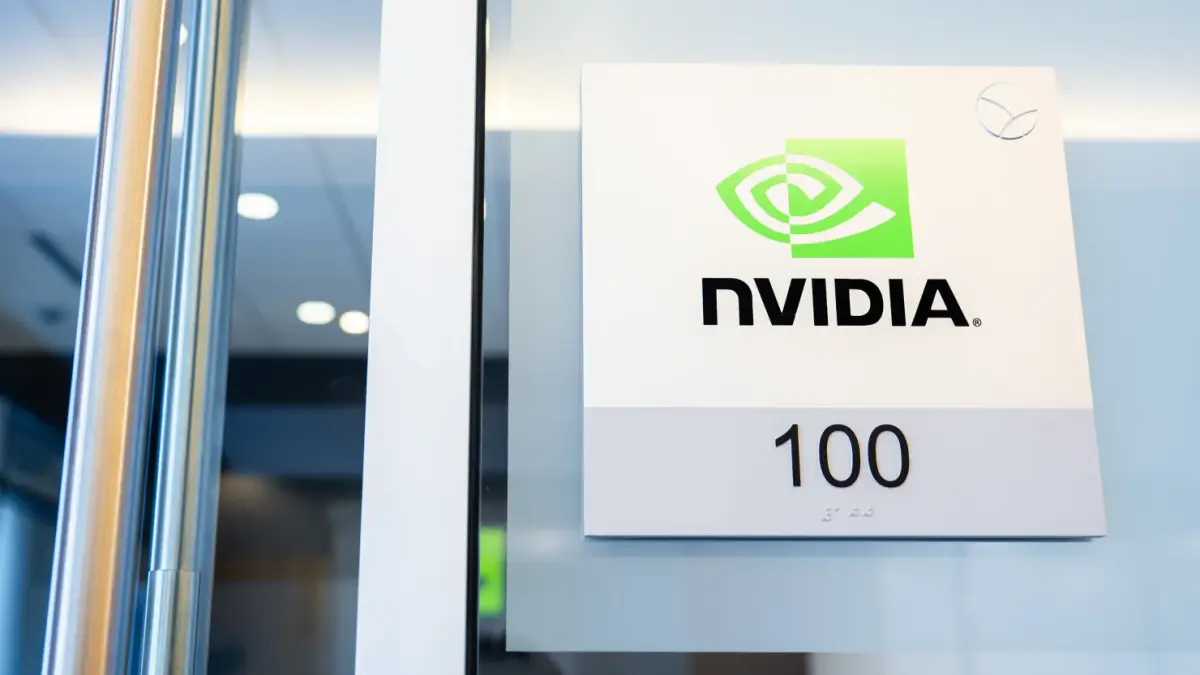The Nasdaq Composite surged 1.24% on Monday to close at a new high, even as semiconductor giant Nvidia slipped further into correction territory. The S&P 500 also posted gains, rising 0.38%, while the Dow Jones Industrial Average dropped 0.25%, marking its eighth consecutive day of losses, the longest losing streak since 2018.
In Europe, the Stoxx 600 index dipped 0.12%, and France’s CAC 40 slid 0.71% after Moody’s downgraded France’s credit rating from Aa2 to Aa3 over the weekend.
Nvidia shares fell 1.7% on Monday to close at $132, approximately 11% below its November high of $148.88 — officially placing it in correction territory. Despite the decline, Nvidia remains up an impressive 166% year-to-date, and analysts suggest this pullback doesn’t necessarily signal a broader downward trend.
According to Keith Lerner, Co-Chief Investment Officer at Truist, Nvidia’s market dominance in artificial intelligence (AI) and semiconductors remains solid:
“You need Nvidia, and you need their chips for infrastructure. But what the market’s also saying is that there are other beneficiaries beyond that.”
Other semiconductor stocks, like Broadcom, are picking up momentum. Broadcom surged in recent sessions following a robust fourth-quarter earnings report and increased price targets from analysts.
Broader Market Drivers
- TikTok and U.S. Supreme Court:
TikTok filed an appeal with the U.S. Supreme Court on Monday, seeking to block a law that could lead to its ban by January 19. On the same day, TikTok CEO Shou Zi Chew reportedly met President-elect Donald Trump at Mar-a-Lago, further fueling speculation around the app’s future in the U.S. - SoftBank’s $100 Billion U.S. Investment:
SoftBank CEO Masayoshi Son announced a massive $100 billion investment in the U.S. over the next four years during his meeting with Trump on Monday. The investment is expected to create 100,000 jobs, with a focus on AI and related infrastructure. - Fed Rate Expectations:
Markets are pricing in a near-certain 25 basis point rate cut from the Federal Reserve on Wednesday. However, Ed Yardeni, President of Yardeni Research, warned that such a move risks creating a “market melt up,” potentially setting the stage for a future pullback.
Nvidia’s correction highlights the broader rotation within the semiconductor and AI sectors. While the company faces minor headwinds — including a Chinese regulatory investigation — its fundamentals remain strong, and its long-term position in the AI infrastructure market appears unchanged.
Meanwhile, stocks like Broadcom are capitalizing on market momentum, with analysts pointing to broader gains for AI-related players.
As Kim Forrest, CIO at Bokeh Capital Partners, explained:
“Momentum has been driving this stock. I don’t think momentum is going to kill it quite yet, but momentum does what momentum does, which is it seeks the higher flyer.”
For investors, the stock market is not a zero-sum game. Unlike a race where one competitor’s gain means another’s loss, owning both Nvidia and Broadcom could offer mutual benefits as market leaders shift positions.





